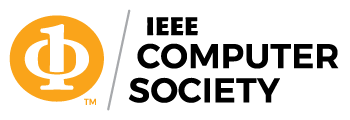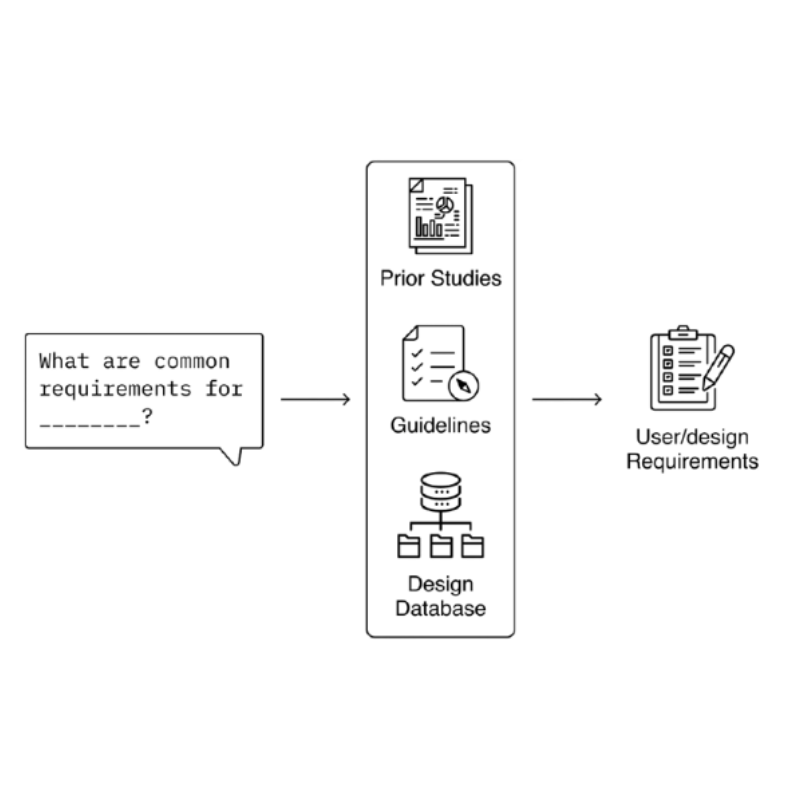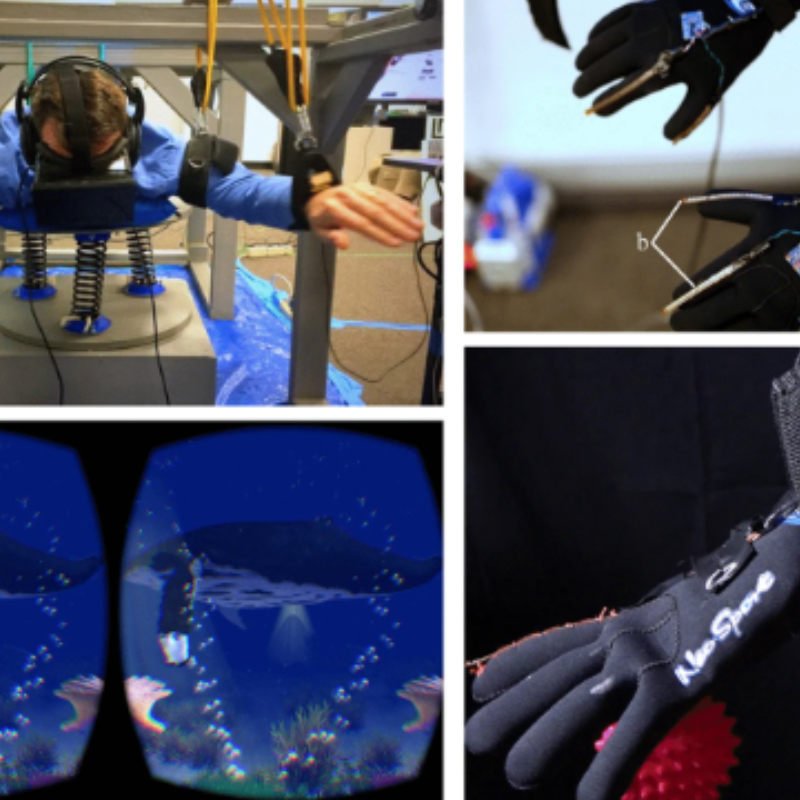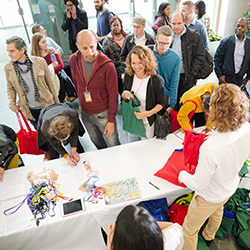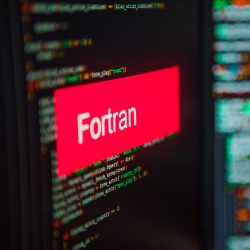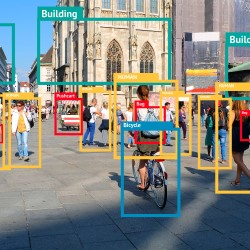Research
News about the latest peer-reviewed research by the world's most authoritative association for computing.
Recent Articles
By IEEE Computer Society Team
Does the promise of artificial intelligence outweigh its environmental impact? That is the subject of a recent paper published in the IT Professional journal by Nir Kshetri at the University of North Carolina at Greensborough, which scrutinizes the energy and water consumption AI and generative AI (GAI) models require along with the carbon emission...
The rapid emergence of generative AI has ushered in a new era of human-machine collaboration, with profound implications for various fields, including visualization. These powerful AI models have sparked speculation about the potential for augmenting or replacing traditional visualization approaches.
However, as Rahul C. Basole (Atlanta, GA, USA) ...
The vision of virtual reality has been the recreation of reality. However, in pursuing this vision, researchers and developers have largely prioritized visual fidelity over integrating other sensory modalities. Favoring a visual perception and, more recently, combining it with audio has led to the design of virtual worlds that look strikingly real ...
By IEEE Computer Society Team
Machine learning (ML) via classical computing has long been used by industries and researchers to meet a nearly infinite variety of challenges. Quantum machine learning (QML), on the other hand, is relatively new and generally underutilized in both industry and research.
Given the recent advances in quantum computing, researchers attending the 202...
By IEEE Computer Society Team
Quantum computing holds immense promise for revolutionizing many fields. However, unlocking this potential hinges on robust and efficient software development, a domain facing unique challenges unlike its classical counterpart.
This idea is explored in the conference proceeding, "Quantum Software Engineering Challenges from Developers' Perspective...
By IEEE Computer Society Team
The field of quantum software engineering (QSE) is rapidly growing, fueled by the potential for quantum computers to solve problems beyond the reach of traditional computers. But building functional quantum software requires a solid foundation, just like any other software project. That's where requirements engineering (RE) comes in as the critical...
By IEEE Computer Society Team
Although many universities and colleges have STEM faculty development programs, glaring deficiencies remain in achieving holistic faculty support. This is particularly true when it comes to supporting faculty in aligning their professional activities—such as teaching—with the pressure to sustain a compelling research trajectory that will advanc...
By IEEE Computer Society Team
In higher education, faculty members' productivity often depends on doctoral students helping them with their research and teaching loads. However, in fields such as engineering and computer science—where well-paying jobs are plentiful for students with even an undergraduate degree alone—attracting doctoral students to a program can be challeng...
By IEEE Computer Society Team
Stack Overflow (SO) is a pivotal online community where developers gather to learn and share knowledge in a question-and-answer format on a vast array of programming topics.
For their contributions, SO users receive reputation points. This fact raised a question in the minds of five Canadian researchers: Are SO reputation points an accurate measur...
By IEEE Computer Society Team
In higher education, career support for faculty is often assumed de facto via membership in a department or the larger institution. That assumption, however, often fails to materialize in the real world. This is particularly true for women and people of color in fields such as computing, where they often face obstacles to finding in-house support, ...
By IEEE Computer Society Team
A team of researchers and programming professionals from universities in the USA, the U.K., Germany, Brazil, France, the Netherlands, and Canada are bringing the classic programming language Fortran into the 21st century. Their research not only digs into the strengths and limitations of Fortran but also focuses on making the language a more popu...
By IEEE Computer Society Team
Given budget cuts, enrollment declines, and technology's ongoing impact on learning, universities are increasingly pressured to ensure that their students thrive both on campus and in the world beyond it.
To address this, computer science faculty at the Rochester Institute of Technology formed a Growth-Mindset Faculty Community of Practice (GM-CoP...
By IEEE Computer Society Team
For many college students, anxiety typically centers on exams, GPAs, and career paths post-graduation. However, new research reveals an unexpected stressor for this demographic: emotional distress over the current climate crisis. For students pursuing a degree in software engineering, this anxiety over the state of the environment may go unnotice...
By IEEE Computer Society Team
Real-time object detection first came on the scene at the dawn of the new millennium with the most basic visual object detection that identified human faces created by Paul Viola and Michael Jones. Fast-forward two decades, object detection has gone from rudimentary to highly sophisticated thanks to computer vision enhancements and deep learning ...
By IEEE Computer Society Team
Highly associated with market research, product design, and medical studies, ethnographic research is a form of qualitative study that looks to examine human behavior and cultures. Ethnographic studies are highly effective at using observations and interviews to draw conclusions about human interactions and motivations, and compared to other trad...
By IEEE Computer Society Team
In 1946, women made up more than 50% of the first programmers tasked with creating the U.S. military's first computer to automate missile trajectory calculators. Without programming languages, compilers, or any precedent to go from, a group of women physically hardwired and programmed computers that took missile projection calculations from 30 ho...
By IEEE Computer Society Team
As more students seek college degrees, the pain of financing their education is all too real. The consumer price index has increased by an estimated 5% since 2022, and inflation continues to climb. Adding to this problem, the cost of attending college has grown since the 1960s, at almost five times the original rate for a four-year college.
Th...
By IEEE Computer Society Team
For faculty members in higher education, tenure is typically viewed as the gold ring, offering career security and increased power both in the department and beyond it. Tenure, however, can also add to a faculty member's workload and decidedly shift the focus away from teaching and toward research and publishing.
To investigate how full-time non-t...
By IEEE Computer Society Team
While we no longer need to explain what "open source" means, it is important to know that in certain areas--like infrastructure--it has become the mainstream way to create software and hardware, with some single-vendor projects being tightly controlled by one organization. Building a diverse community around a project has to start at the beginning ...
While diversity in STEM has been a long-discussed initiative, true progress is sometimes slow-moving and multi-faceted. In 2021, Hispanic, Asian, and Black STEM workers comprised only 15%, 9%, and 8% of the workforce, respectively. While making up 51% of the U.S. population, women only accounted for 28% of STEM occupations. Companies have made sign...
There are no results for this search.
Analysis, Blogs, Commentary
